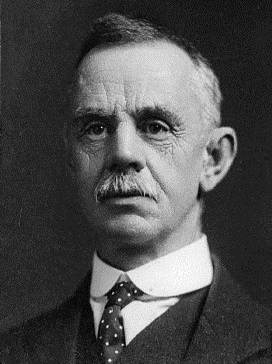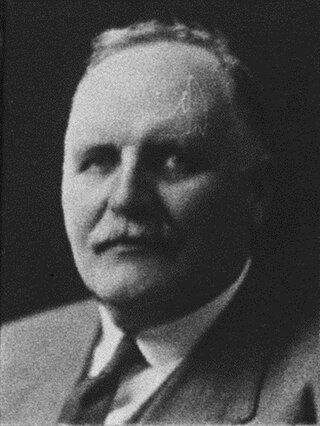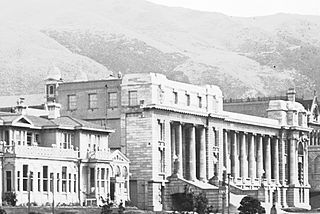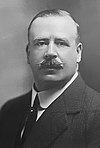
Sir Thomas Mason Wilford was a New Zealand politician. He held the seats of Wellington Suburbs then Hutt continuously for thirty years, from 1899 to 1929. Wilford was leader of the New Zealand Liberal Party, and Leader of the Opposition from 1920 to 1925.
The Oamaru by-election of 1923 was a by-election during the 21st New Zealand Parliament. The by-election was called following the invalidation of the preceding 1922 general election result due to irregularities. It was held on 1 May 1923.
The Franklin by-election of 1925 was a by-election during the 21st New Zealand Parliament. The seat became vacant due to the death of the sitting Member, William Massey. It was held on 17 June 1925. Two candidates contested the seat:

Nelson is a New Zealand parliamentary electorate, returning one Member of Parliament to the House of Representatives of New Zealand. From 1853 to 1860, the electorate was called Town of Nelson. From 1860 to 1881, it was City of Nelson. The electorate is the only one that has continuously existed since the 1st Parliament in 1853.

Tauranga is a New Zealand parliamentary electorate, returning one Member of Parliament to the New Zealand House of Representatives. The current MP for Tauranga is Sam Uffindell of the National Party, who won the seat in the 2022 Tauranga by-election, following the resignation of the previous MP, Simon Bridges of the National Party.

Ernest Page Lee was a New Zealand lawyer and politician of the Reform Party.

Waitaki is an electorate for the New Zealand House of Representatives that crosses the boundary of North Otago and South Canterbury towns on the East Coast of the South Island. The electorate was first established for the 1871 election that determined the 5th New Zealand Parliament. It has been abolished and re-established several times and in its early years was a two-member electorate for two parliamentary terms. The current electorate has existed since the 2008 election and is held by Miles Anderson of the National Party.

Waikato is an electorate in the New Zealand Parliament. A Waikato electorate was first created in 1871 and an electorate by this name has existed from 1871 to 1963, 1969 to 1996, and 2008 to the present, though exact borders have often changed.

Eden, a former New Zealand parliamentary electorate, lay in the general area of the suburb of Mount Eden in the city of Auckland.
Manukau is a former New Zealand parliamentary electorate in the south Auckland Region. It existed from 1881 to 1978, with a break from 1938 to 1954. It was represented by nine Members of Parliament. Two by-elections were held in the electorate.
Riccarton is a former New Zealand parliamentary electorate. It existed from 1893 to 1978, and was represented by eight Members of Parliament.
Avon is a former New Zealand parliamentary electorate. It was created for the 1861 general election and existed until 1996. It was represented by 13 Members of Parliament and was held by Independents, Liberal Party or Labour Party representatives.
Egmont is a former New Zealand electorate, in south Taranaki. It existed from 1871 to 1978.

Charles Edward de la Barca Macmillan was a New Zealand politician. He was Mayor of Tauranga (1915–1917) and a member of the House of Representatives (1923–1935).

The 22nd New Zealand Parliament was a term of the New Zealand Parliament. Its composition was determined by the 1925 election, and it sat until the 1928 election.

The 18th New Zealand Parliament was a term of the New Zealand Parliament. It was elected at the 1911 general election in December of that year.

The 20th New Zealand Parliament was a term of the New Zealand Parliament. It was elected at the 1919 general election in December of that year.

The 21st New Zealand Parliament was a term of the New Zealand Parliament. It was elected at the 1922 general election in December of that year.

The 23rd New Zealand Parliament was a term of the New Zealand Parliament. It was elected at the 1928 general election in November of that year.
Benjamin Conrad "Cockie" Robbins was a member of the New Zealand Legislative Council from 9 March 1936 to 8 March 1943; and 9 March 1943 to 8 March 1950.













